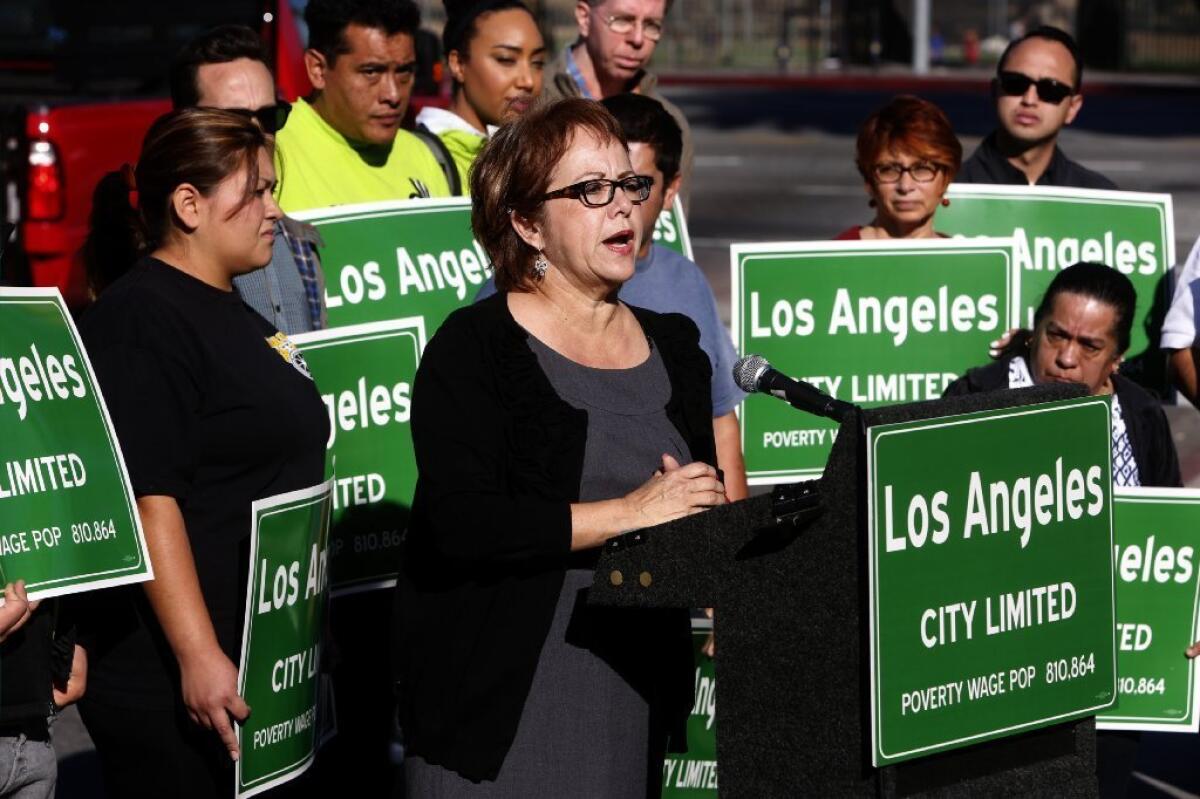Will L.A. set the standard for a higher minimum wage?

The Los Angeles hotel labor movement, one of the few bright spots nationally for organized labor in the private sector, threw down the gauntlet for a higher minimum wage today.
The raw material for its campaign to raise the minimum wage for large hotels in the city to $15.37 an hour is a report from the Economic Roundtable that makes for demoralizing reading. The study found that nearly 811,000 workers in L.A. live on less than $15 an hour. That’s where the study places the threshold of a “living wage,” and it’s hard to argue with the judgment; for a full-time worker that’s about $26,250 a year. (The raise would apply at hotels with more than 100 rooms.)
As we observed in December, efforts to raise the minimum wage have become local grass-roots campaigns because Congress has dropped the ball: despite indications of interest among congressional Democrats and in the White House, the chances of a raise in the federal minimum wage any time soon are, well, conjectural. The goal of L.A. labor leaders is to move an ordinance for hotel workers through the City Council, where it’s to be sponsored by council members Mike Bonin and Nury Martinez.
Here’s what’s at stake. Some 46% of the city’s full- and part-time workers collect less than $15 an hour. They’re concentrated in the hospitality (hotel and restaurant), retail trade and construction industries, where they constitute 50% of the workforce or higher. In hotels and restaurants, nearly 7 in 10 workers earn less. They’ve been falling further behind because of inflation -- the minimum wage in 1968 of $1.60 an hour had a value in 2012 dollars of $10.51; but California’s minimum wage today is $8. (It’s set to rise to $10 -- in 2016.)
“I don’t think most people in the city realize the percentage of people here who work for less than a living wage,” Maria Elena Durazo, head of the county Federation of Labor, told me. She points out that Los Angeles was one of the first major cities in the country to adopt a living wage ordinance, in 1997. The measure, extended to LAX in 1999, initially required a minimum wage of $8.50 an hour ($7.25 if minimal medical benefits were included).
“L.A. should be a leader,” she said. “If it could set an example for other cities, I’d love for that to happen.”
The Roundtable report makes the case that an adequate minimum wage is an economic stimulus measure, for wage earners at that level spend everything they earn. The study estimates that the $7.6 billion in additional wage income would generate $9.2 billion in annual sales county-wide, which in turn could create nearly 65,000 new jobs.







